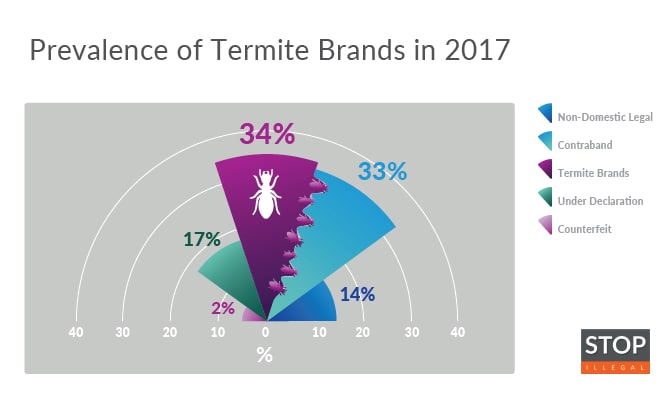
Illicit tobacco costs Latin America and Canada USD 4.6 billion every year
30 MAY 2018

When you think of illicit trade in Latin America, you tend to think of drug trafficking. And of course, this crime has indeed occupied the minds of many governments in Latin America during recent decades, while causing major problems for society and the economy.
However, according to KPMG’s Project EOS report, the illicit trade of tobacco products is having an increasingly significant impact on the region. It is clear that the illicit trade of tobacco is a crime with severely negative consequences which governments must address.
The report looks at the illicit trade of tobacco in Latin America and Canada, and has some eye-catching statistics:
- Illicit tobacco led to a loss of USD 4.6 billion in government tax revenues across the region in 2016.
- 40 billion illegal cigarettes are consumed in the region.
- Paraguay stands as the single largest producer of illegal cigarettes, exporting over half of the illicit cigarettes consumed in the region.
- Brazil accounts for just under half of all the total amount illicit cigarettes consumed in Latin America and Canada.
- Access to illicit cigarettes is further facilitated by lax controls in Free Trade Zones, such as Colon (Panama) and Corozal (Belize).
Illicit Tobacco Costs Latin America and Canada USD 4.6 Billion Every Year
2:28

To find out more about the report’s findings and what is being done to address the problem, watch STOP: ILLEGAL’s video.
The following video was based on Project EOS, a study of illicit cigarette consumption in Latin America and Canada, published by KPMG in January 2017, and also on the following sources and documents:
The following video was based on Project EOS, a study of illicit cigarette consumption in Latin America and Canada, published by KPMG in January 2017, and also on the following sources and documents:
- “Illicit cigarette trade in Central America, from ant smuggling to an elephant on the market”,
CID Gallup, September 2016.
- “Money laundering vulnerabilities of Free Trade Zones”, Financial Action Task Force (FATF) Report,
March 2010.
- “Organised crime enablers”, World Economic Forum, July 2012.
- “The global illicit tobacco trade: A threat to national security”, United States Department of State, December 2015.
- The Free Trade Zone of Colon, considered the second largest Free Zone in the world: link I, link II.
Related articles
Share this link
Illicit trade prevention


